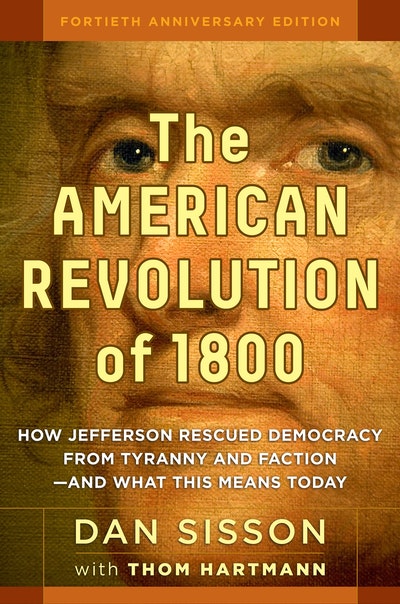An insightful assessment of Jefferson’s defeat of Adams in the 1800 election, and how it represented a blow against elitism and authoritarianism.
In this brilliant historical classic, Dan Sisson provides the definitive window into key concepts that have formed the backdrop of our democracy: the nature of revolution, stewardship of power, liberty, and the ever-present danger of factions and tyranny. Most contemporary historians celebrate Jefferson’s victory over Adams in 1800 as the beginning of the two-party system, but Sisson believes this reasoning is entirely the wrong lesson. Jefferson saw his election as a peaceful revolution by the American people overturning an elitist faction that was stamping out cherished constitutional rights and trying to transform our young democracy into an authoritarian state.
If anything, our current two-party system is a repudiation of Jefferson’s theory of revolution and his earnest desire that the people as a whole, not any faction or clique, would triumph in government. Sisson’s book makes clear that key ideas of the American Revolution did not reach their full fruition until the “Revolution of 1800,” to which we owe the preservation of many of our key rights. With contributions by Thom Hartmann that bring out the book’s contemporary relevance, this fortieth anniversary edition contains new insights and reflections on how Jefferson’s vision can help us in our own era of polarization, corruption, government overreach, and gridlock.
